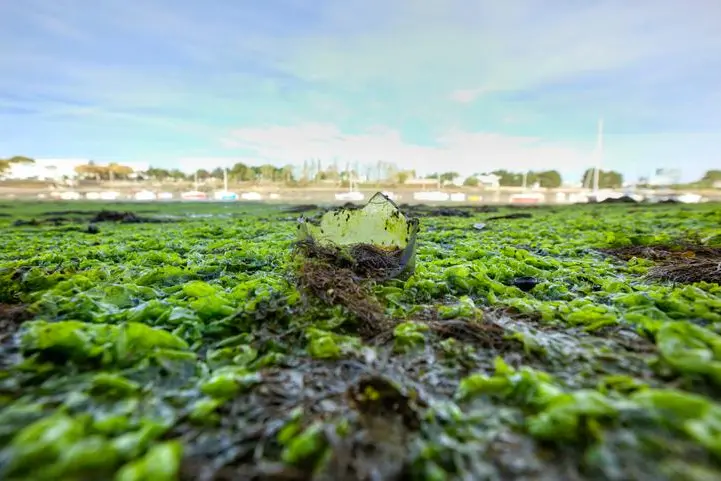PHOTO
SHANGHAI - China's efforts to combat dangerous soil pollution are being stymied by local governments and their need to earn money through land sales, environmental group Greenpeace said on Wednesday.
Soil pollution is one of China's biggest environmental challenges. A 2014 government survey showed nearly a fifth of the country's farmland was contaminated to varying degrees by chemical waste, pesticides, mining residues and heavy metals.
Beijing drew up a soil pollution action plan in 2016 and new legislation went into effect in January, but the government has struggled to create incentives and financing mechanisms to pay for the clean-up, especially in old industrial or rural regions where property prices are low.
Efforts to improve the environment in urban areas have also led to the demolition of thousands of industrial plants, leaving behind large numbers of contaminated sites.
A new study conducted by Greenpeace and the Institute of Ecology and Environment at China's Nanjing University said the reliance on land transfers to generate revenues meant local governments had less motivation to ensure pollution was properly treated.
"Chinese cities rely heavily on land transfer fees to generate revenue and they have a clear incentive to redevelop land on quick turnarounds," said Bao Hang, campaigner with Greenpeace in Beijing.
"Even a city with deep commitment to properly handling toxic land will in the end need money," Bao said.
In 2018, the transfer of land utilisation permits earned 6.5 trillion yuan ($968.53 billion) for local authorities, up a quarter on the year, the study said. Over the same period, a quarter of China's contaminated land was transferred, earning as much as 1.05 trillion yuan.
By comparison, only 7.75 billion yuan has been spent on treating the land, 7 percent of total earnings last year, it said.
The study found 41 percent of China's land contamination was caused by chemical production. Heavy metals and metalloids like chromium, lead and arsenic accounted for 54 percent of the total pollutants, it said.
The range of pollutants also makes it harder to find solutions, with land in the city of Wuhan contaminated by 14 different substances. Constant land ownership changes also make it harder to ensure polluters are held accountable, the study said.
"Local environmental protection bureaus need some say in land use during the planning stage, given how widespread this problem has become," said Bao.
($1 = 6.7112 yuan)
(Reporting by David Stanway; Editing by Joseph Radford) ((david.stanway@thomsonreuters.com; +86 21 6104 1799; Reuters Messaging: david.stanway.thomsonreuters.com@reuters.net))





















